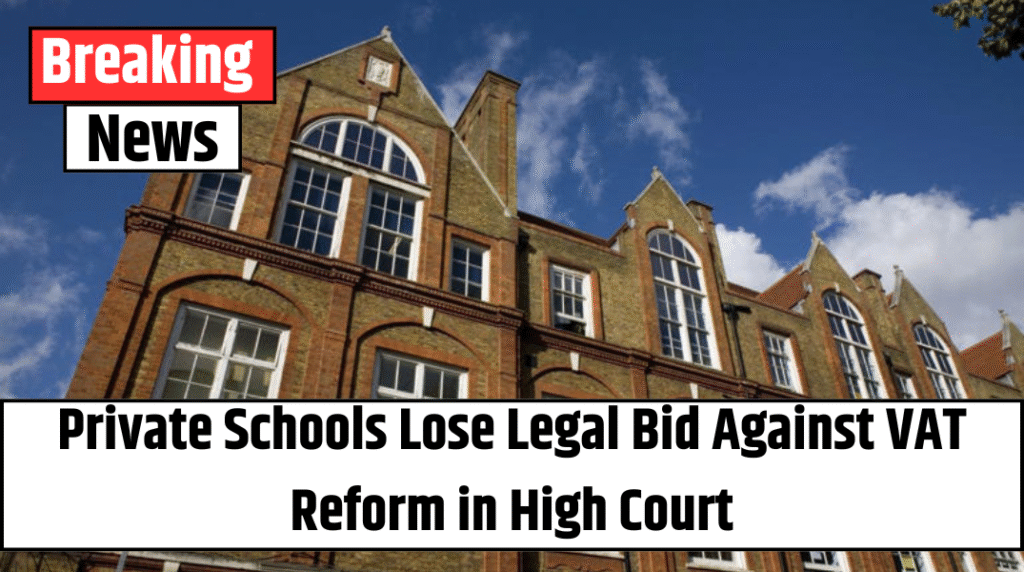A group of High Court judges has ruled against legal efforts to block the UK government’s controversial decision to impose VAT on private school fees, upholding the policy as lawful and consistent with human rights legislation.
The case, brought by families and private institutions, argued that the new tax measure unfairly discriminates against certain groups, particularly those with children who have special educational needs and disabilities (SEND), students attending single-sex schools, and families relying on low-cost faith-based education.
Julie Robinson, chief executive of the Independent Schools Council (ISC), which supported some of the claimants, said the council was reviewing the lengthy judgment and weighing potential next steps.
The UK government welcomed the verdict, emphasizing the anticipated benefits to the wider education system. A government spokesperson stated that the VAT, introduced on 1 January, is expected to generate £1.8 billion annually to bolster funding for state schools.
Three separate legal challenges had been lodged, highlighting concerns from families who claimed there were no suitable alternatives to private education in their area, especially for children with SEND. They also noted that such a tax policy has little precedent across Europe.
However, legal representatives for Chancellor Rachel Reeves, HMRC, and the Department for Education argued that the tax aligns with efforts to improve state education for the vast majority of pupils—roughly 94%—and that it ensures parents who opt for private schooling contribute more equitably to public services.
Also Read – How Hot Is Too Hot? When Schools May Close Due to Extreme Heat
The judges—Dame Victoria Sharp, Lord Justice Newey, and Mr Justice Chamberlain—rejected the claims, noting that the measure had been passed through Parliament following robust debate and had featured as a pledge in the governing party’s manifesto.
In their 94-page ruling, the court acknowledged that the tax would have financial impacts on some families, including those with specific educational, religious, or personal preferences. However, the judges determined that the expected public benefit outweighed these concerns, and that Parliament had acted within its rights in implementing the change.
The judgment conceded that while the legislation does interfere with certain human rights, such as freedom of religion and access to education, it falls within the broad discretion governments are allowed when balancing competing public interests.
Sophie Kemp, of law firm Kingsley Napley, which represented some of the claimants, called the outcome “disappointing” but said it was important to have challenged the policy in court.
“The judgment reflects the deference courts must give to Parliament, even if individuals are adversely affected,” she noted.
Some families, supported by the Christian Legal Centre, have already indicated plans to appeal the decision. Caroline Santer, head of The King’s School in Hampshire, expressed dismay over the outcome, calling it “deeply disappointing” after a long wait for a decision.
The government responded to the ruling by reaffirming that the legislation complies with human rights standards and reiterated its commitment to using the new revenue to strengthen the UK’s public education system.



